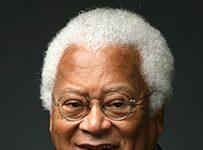 A new study by scientists at California State Polytechnic University in Pomona, Vanderbilt University in Nashville, and the University of Southern California in Los Angeles finds that Ph.D. bridge programs can be a potent mechanism to empower students, foster diversity and spur a more holistic approach to graduate education.
A new study by scientists at California State Polytechnic University in Pomona, Vanderbilt University in Nashville, and the University of Southern California in Los Angeles finds that Ph.D. bridge programs can be a potent mechanism to empower students, foster diversity and spur a more holistic approach to graduate education.
Featured prominently in the report is the Fisk-Vanderbilt Master’s-to-Ph.D. Bridge Program – the first Ph.D. bridge program in physics and astronomy, founded more than 15 years ago and the Cal-Bridge program operated by the University of California and the California State University systems.
Co-Author Kelly Holley-Bockelmann, Stevenson Professor of Physics and Astronomy who serves as Vanderbilt University’s director of the Fisk-Vanderbilt Bridge Program, states that “we aimed to identify the commonalities across current Ph.D. bridge programs in the U.S., in order to synthesize the real impact these education initiatives are having on graduate students. What we found is that these programs, including Fisk- Vanderbilt, are proving successful at identifying and fostering talented scholars from traditionally underrepresented groups. We argue that approaches focusing on ‘fixing the student’ need to change — the program itself and the mentors need to commit to growing and learning along with the student.”
The authors conclude the paper by stating that “the students who progress through these bridge programs provide powerful evidence to counter and dismantle conventional, racialized mindsets about merit and success, and the principles elucidated by bridge programs can help guide Ph.D. programs that say they are committed to equity and inclusion to make good on that commitment.”
The full study, “PhD Bridge Programs as Engines for Access, Diversity and Inclusion,” was published on the website of the journal Nature Astronomy. It may be accessed here.












